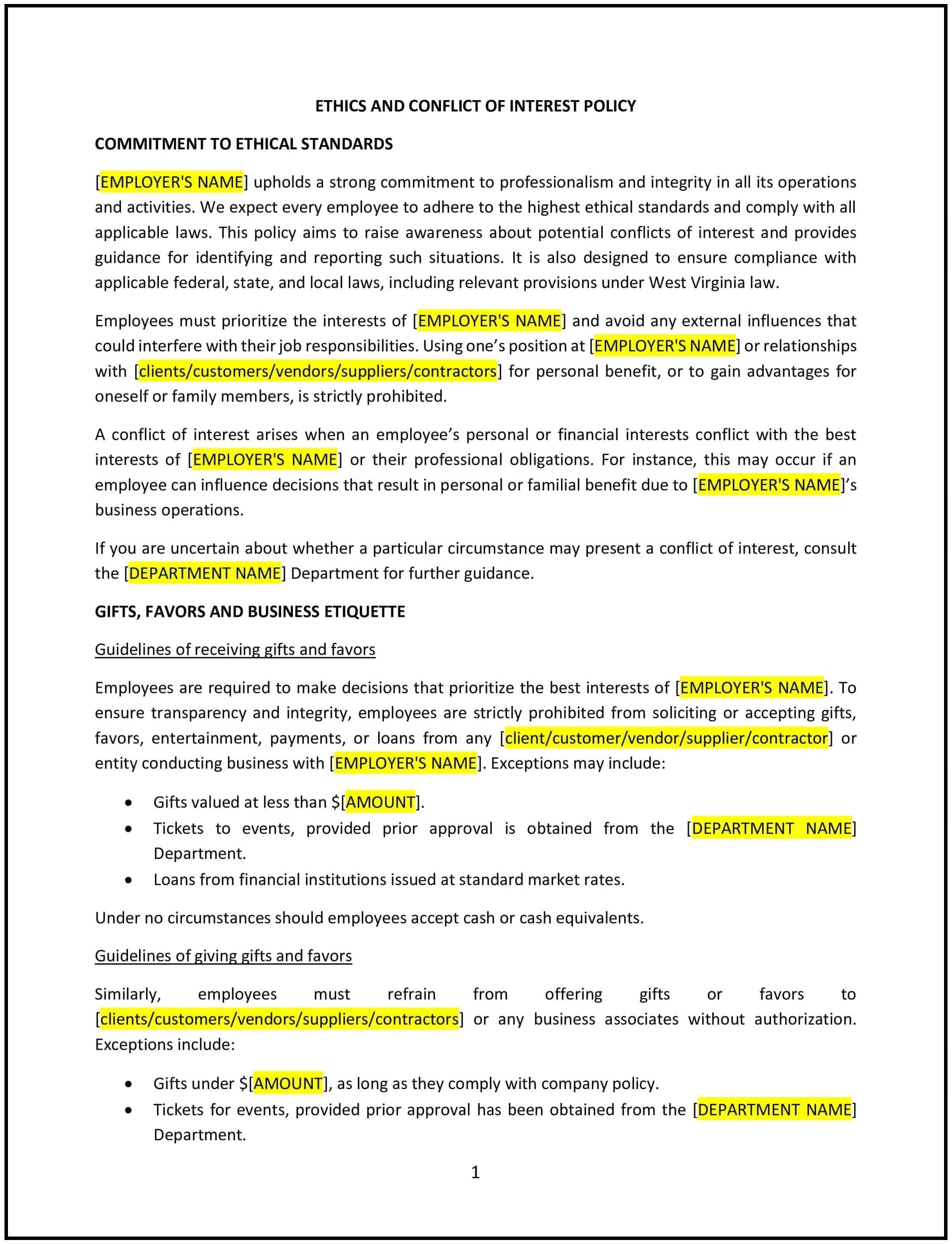Ethics and conflict of interest policy (West Virginia): Free template
Got contracts to review? While you're here for policies, let Cobrief make contract review effortless—start your free review now.

Customize this template for free
Ethics and conflict of interest policy (West Virginia)
In West Virginia, an ethics and conflict of interest policy establishes guidelines for maintaining integrity, transparency, and ethical conduct in the workplace. This policy helps employees understand their responsibilities to avoid conflicts of interest and act in the best interests of the organization. By promoting accountability and ethical behavior, the policy supports compliance with legal and regulatory requirements.
The policy defines conflicts of interest, outlines reporting procedures, and provides examples of acceptable and unacceptable behaviors.
How to use this ethics and conflict of interest policy (West Virginia)
- Define conflicts of interest: Clearly explain what constitutes a conflict of interest, such as financial interests, relationships, or outside activities that could interfere with business decisions.
- Establish reporting procedures: Provide employees with clear instructions for disclosing potential conflicts of interest, including the required forms and designated contacts.
- Set expectations for ethical conduct: Outline general principles for ethical behavior, such as honesty, fairness, and compliance with laws and regulations.
- Address violations: Explain the process for investigating potential conflicts or unethical behavior and the consequences of violations, such as disciplinary actions.
- Support compliance: Align the policy with West Virginia labor laws and federal regulations to ensure legal and ethical adherence.
Benefits of using an ethics and conflict of interest policy (West Virginia)
- Promotes transparency: Encourages employees to disclose potential conflicts, reducing the risk of hidden issues that could harm the organization.
- Supports compliance: Helps businesses adhere to West Virginia laws and federal regulations, minimizing legal risks and penalties.
- Enhances workplace culture: Fosters a culture of accountability and trust by promoting ethical behavior across all levels of the organization.
- Protects organizational integrity: Reduces the likelihood of decisions influenced by personal gain or external pressures.
- Provides clarity: Sets clear guidelines and examples to help employees identify and avoid conflicts of interest.
Tips for using an ethics and conflict of interest policy (West Virginia)
- Communicate the policy: Share the policy with employees during onboarding and ensure it is accessible for reference at all times.
- Train employees: Offer regular training on ethical conduct and identifying conflicts of interest to ensure consistent understanding.
- Require disclosures: Regularly remind employees to disclose any potential conflicts of interest and provide a simple process for doing so.
- Monitor compliance: Conduct periodic audits or assessments to ensure adherence to the policy and address any gaps.
- Review regularly: Update the policy as needed to reflect changes in West Virginia laws, federal regulations, or organizational priorities.